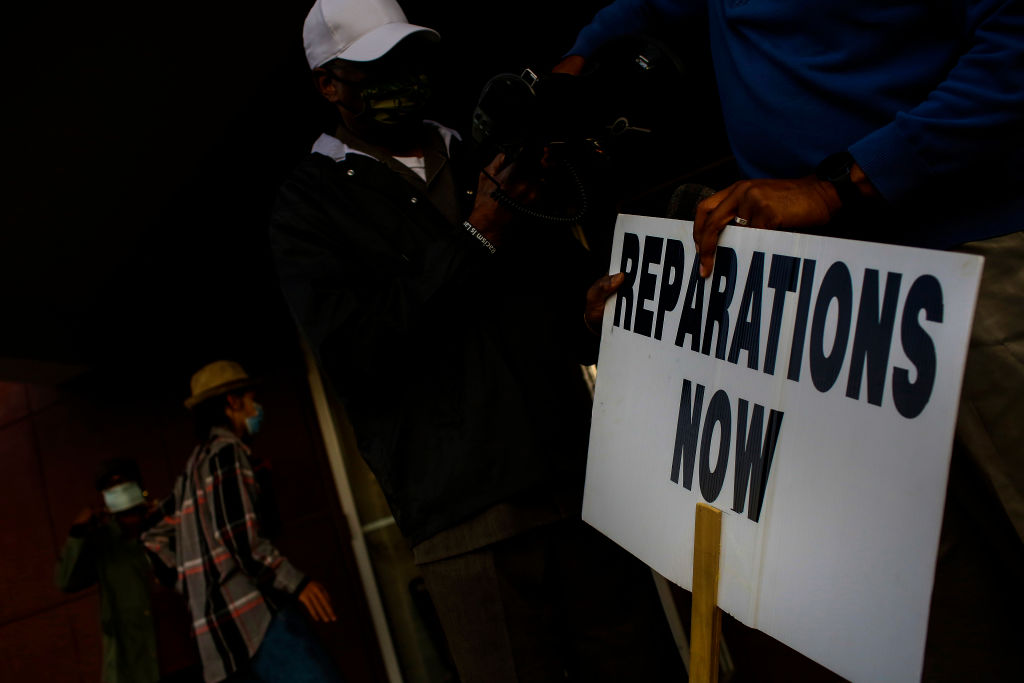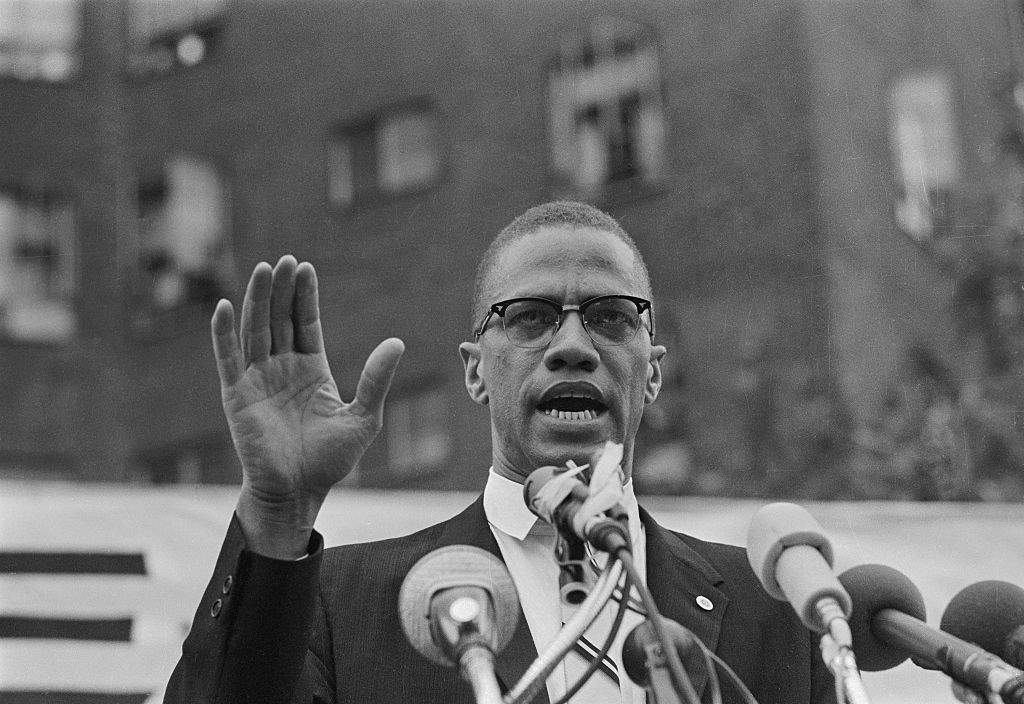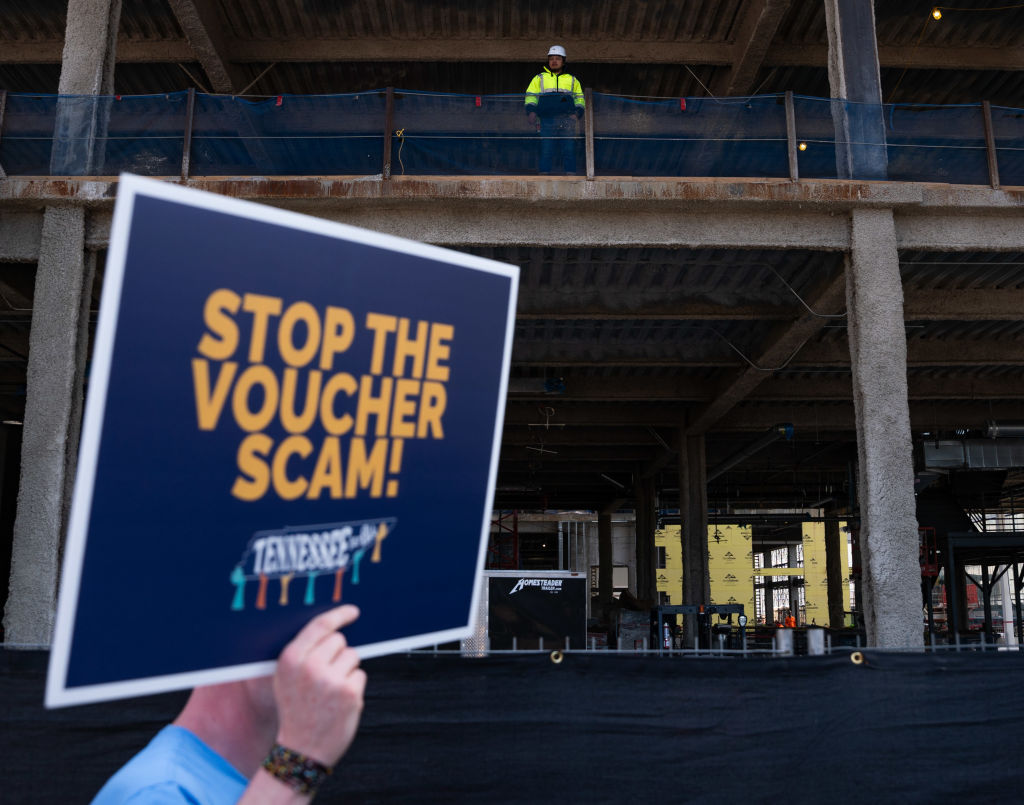Reparations Is More Than A Check
Op-Ed: Reparations Must Be More Than A Check

Source: The Washington Post / Getty
While cash may be king, reparations are about much more than a check. Compensation is just one of five required elements for reparations as defined by the United Nations. The other four are acknowledgment, restitution, rehabilitation and cessation and non-repetition. And while the notion of compensation may resonate most strongly with people (and rightly so), reparations are also about the systems, structures and institutions built on a history of anti-Black racism that has ensured Black people would never have the cash on hand to convert to wealth that would allow them to thrive.
When a first-of-its-kind Guaranteed Basic Income Program in Chicago launched last month in which 5000 residents would receive $500 a month for one year, 176,000 households applied. The program is one of the nation’s largest monthly cash assistance programs. Mayor Lori Lightfoot stated, “Putting cash directly into the hands of people who need it most is one of the most efficient and effective ways for us to support residents working hard to regain economic stability.”
People need cash. This is obvious as families struggle with inflation, making purchasing necessities like food, gas and baby formula increasingly difficult. Many are still reeling from the economic shocks wrought by Covid-19 – a virus that insists on cementing its staying power by mutating into new and elusive strains.
Amid all of this, the drumbeat for reparations beats ever more loudly. National coalitions are pressuring the Biden Administration to advance HR-40 legislation via Executive Order, while other local, state and federal groups are forming commissions and holding town halls and teach-ins on reparations. Even philanthropy is taking a closer look at the issue from a U.S. and international lens.
Big players in philanthropy like The Rockefeller Foundation are supporting leaders working on reparations who are convening experts, practitioners and advocates to understand the reparations landscape better. The Macarthur Foundation is doing the same through a time-bound equitable recovery initiative. This moment demands clarity on the focus of reparations advocacy; what it is, what it is not and every interpretation in between.
By almost every metric and nearly every policy area, Black people have struggled for equity and justice in a society that has been hesitant and timid about correcting documented harms. A recent New York Times article on Haiti lays bare how global financial institutions and governments contributed to Haiti’s economic, social and political devastation. Yet, right here in the United States, we have a tax system that privileges wealth over income while the federal government had – in fact, and at times by law – excluded Black people from the mechanisms that white Americans were able to take advantage of to build wealth like the GI Bill and FHA loans. The federal government was also complicit in taking land from Black farmers. A 2022 study showed that African-American farmers lost about $326 billion worth of land in the U.S. due to state-sanctioned discrimination during the 20th century.
Our financial institutions are still deeply engaged in practices that rob Black people of opportunities to build wealth, making closing the racial wealth gap a Sisyphean endeavor. A 2020 study of JP Morgan Chase’s lending practices in Chicago found that the bank lent more to one predominantly white Chicago neighborhood than to all of Chicago’s Black neighborhoods combined. Homeownership is one of the most secure pathways to building wealth – and critically for Black people, generational wealth. Yet, a 2021 study by Freddie Mac found that Black and Latino loan applicants receive lower home appraisal values than White applicants.
If the systems constructed based on the harm are left intact, a cash payout is merely a temporary salve on a gash that – 400 years after the end of the Transatlantic Slave Trade – remains open, irritated by the repeated aggravation of the wound from police killings to ongoing housing discrimination, to health disparities and other metrics that show the effect of anti-Black policies.
While direct cash payments are important and essential, to make a check, the center point of reparations would be to overlook the fact that without the necessary transformations in the financial, taxation, economic, housing, and other systems, any checks issued would only be circulated back into flawed systems that harm Black people.
True and honest Reparatory justice would entail a commitment to building systems that can meet the material needs of Black people; it is, however, noteworthy that such a commitment is not just good for Black people – it’s good and essential for the proper functioning of a just and equitable society.
Dr. Amara Enyia is the Manager for Policy and Research at the Movement for Black Lives and President of Global Black. She is also a strategist and public policy expert working on local and national policy and international affairs/foreign policy with expertise in Africa, Central Asia, and Latin America.
SEE ALSO:
OP-ED: For Reparations, Black America Needs Power, Not New Names
















